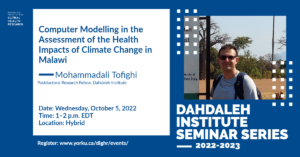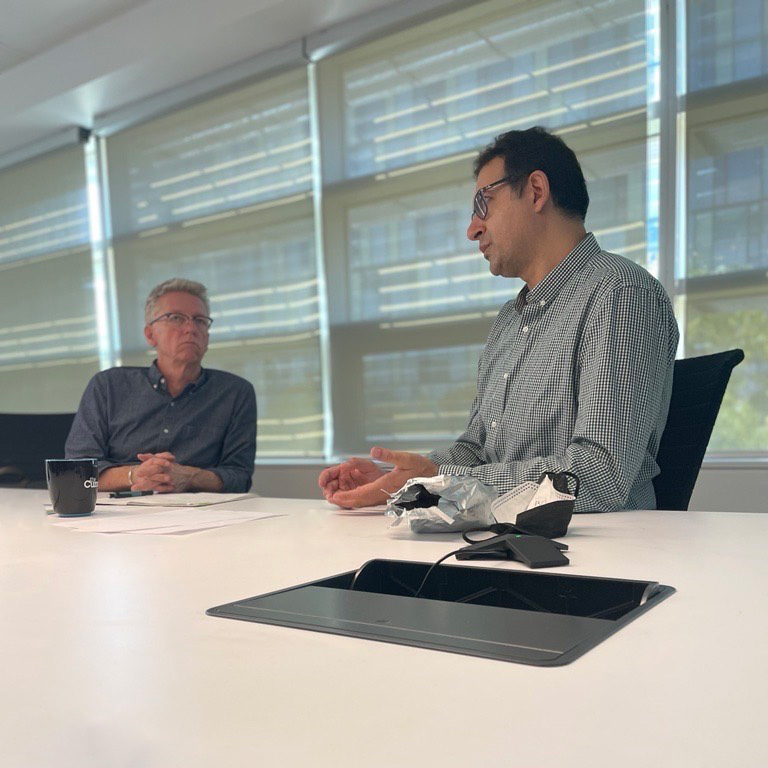Post
Published on May 25, 2023


On October 5, Dahdaleh postdoctoral research fellow Mohammadali Tofighi introduced computer modelling approaches and applications for modelling health impacts caused by climate change in Malawi.
The modelling process can be abstract. Mohammadali discussed a few modelling approaches that can be used based on the level of abstraction and the information available. For example, dynamic systems modelling works best for low abstraction data because it is numerical with analysis of physical state variables and algebraic differential equations. Whereas system dynamics modelling can work well with high-abstraction ideas and uses feedback loops to gather data. Next, agent-based modelling can account for and measure individual behaviour, direct and indirect interaction, and a wide range of abstractions.
The research team were able to map out their data to find patterns, and correlations, and apply real-world solutions that address the spread of disease or food insecurity caused by climate change. They used a combination of these modelling techniques, but he especially highlighted agent-based modelling, which allows for flexible, expandable, and sharable data collection. It can depict how environments and agents interact. For instance, the level of rainfall can inform the rate of malaria being spread. Ultimately, these models can simulate rapidly changing weather patterns and prepare local communities for these challenges.
Watch the seminar presentation below:
Connect with Mohammadali Tofighi
Themes | Global Health & Humanitarianism, Global Health Foresighting, Planetary Health |
Status | Active |
Related Work | |
Updates |
N/A
|
People |
You may also be interested in...
Ten Exceptional Scholars Awarded 2023-2024 Dahdaleh Global Health Graduate Scholarships
The Dahdaleh Institute is delighted to announce this year's recipients of the 2023-2024 Dahdaleh Global Health Graduate Scholarships. We would like to extend a warm congratulations to the following recipients: Master's level Eyram Agbe Digital ...Read more about this Post
Empowering Communities Through AI: How Senegal Is Pioneering Digital Health Surveillance in West Africa
AI4PEP Senegal has been prominently featured in the 2025 Q1 “AI in Africa” Summary Report by Convergence AI, under the AI for Digital Transformation section. The recognition highlights the team’s efforts to apply artificial intelligence in ...Read more about this Post
Key Moments from the Trust and Political Sociology of Health Workshop
The "Trust and Political Sociology of Health" research workshop took place on April 4th at the Dahdaleh Institute for Global Health Research, York University. This forum brought together senior and emerging scholars, practitioners, and students ...Read more about this Post
